“It was clear that the Clergy feared, for some reason, losing their power. They saw the Synod on Synodality as a way to transfer the power to the Laity. They opposed the process, seeing it as a way to democratize the Church. And they started fighting the process. In some Parishes, Priests said that they didn't want to hear the mention of Synodality,” the Archbishop who has been at the helm of Bamenda Archdiocese since February 2020 said.
On her part, Laurene Oluoch a journalist the Catholic Information Service for Africa (CISA) said that she had interacted with people who saw the Synod on Synodality as an opportunity to air their long bottled-up grievances about what they thought was not going on well in the Church.
“It was like a moment to disparage the Church, especially in the remote places where we went to speak to Christians,” Ms. Oluoch said.
The Nairobi-based Catholic journalist added, “It was like a moment for the Laity to finally take over. Priests, on the other hand, needed to be reminded that they were not losing their ‘power’ to the Laity.”
Bishop Willybard Lagho of Kenya’s Diocese of Malindi shared that he had leant that the Synod on Synodality was not a new concept, especially in Africa where he said the Catholic Church has embraced the new way of being church in Small Christian Communities (SCCs).
(Story continues below)
Bishop Lagho said that a key aspect of SCCs is sharing the word of God and listening to each other, factors he said are similar to what the Synod on Synodality proposes.
The Bishop of Malindi, however, expressed concern that up to now, some members of the Clergy have not internalized the process of the Synod on Synodality. “I feel they consider it as an external phenomenon rather than an internal process,” he said.
To the Kenyan Catholic Bishop, some people in the Church see the Synod on Synodality as a time-bound process that will eventually come to an end.
He underlined the need for the Clergy and Laity to understand that no one in the Church is too illiterate to air their views in the Synod on Synodality, which he described as “a time for those who have been silent for too long to speak out for the first time.”
Fr. Marcel Uwineza, the Principal of the Kenya-based Hekima University College shared his experience of the Synod on Synodality through encounters with other people, saying, “I experienced the pain of families who shared about their children struggling with their sexuality.”
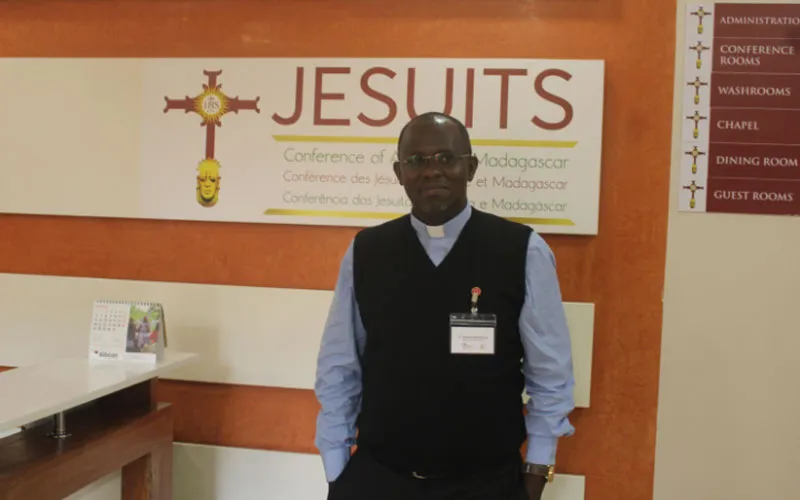 Fr. Marcel Uwineza, the Principal of Hekima University College at the JCAM headquarters in Nairobi, Kenya. Credit: ACI Africa
Fr. Marcel Uwineza, the Principal of Hekima University College at the JCAM headquarters in Nairobi, Kenya. Credit: ACI Africa
The Rwandese Catholic Priest said that he had organized seminars about the Synod on Synodality at Hekima University College, and has had Jesuit Priests go to share experiences of Synodality in India and in Rome.
As for Gertrude Chimange, a Catholic Lay woman working with the Zimbabwe Community Development Foundation Trust, her experience with the Synodality had started with her first listening to herself, and finding healing.
“I gradually learnt that it was something more than picking the bad we have seen in the Church. To me, the Synod on Synodality has also been a healing process,” Gertrude said.
She described herself as “a survivor of some of the negative aspects of a Church that didn't listen”, and added, “As women, we have for a long time had no voice in the Church.”
Philomena Mwaura, a lecturer at Kenyan-based Kenyatta University (KU) shared that she had taken personal initiative to learn as much as she could about the Synodal Church
She said that when the Synod on Synodality was announced, her SCC community offered off-hand formation, and that not everyone had internalized what it entailed.
“When the Synod on Synodality was announced we were taught about the process in our Small Christian Community. The challenge was that everything about it was packed in just a few hours, and not everyone understood its depth,” Philomena said.
She added that her parish went ahead to mobilize all groups for seminars on the Synod on Synodality. Additionally, a questionnaire was administered for people to participate in it.
“I was later invited to participate in the development of the working Document for the Continental Stage. This exposed me to a lot of material on the Synod on Synodality. I worked in groups from across the continent and enjoyed the richness of what was shared concerning other people’s experiences with the Synod,” the KU lecturer said on March 15.
She added, “I also participated extensively in the ASI sessions and built up my understanding of what it means to be a Synodal Church.”
Agnes Aineah is a Kenyan journalist with a background in digital and newspaper reporting. She holds a Master of Arts in Digital Journalism from the Aga Khan University, Graduate School of Media and Communications and a Bachelor's Degree in Linguistics, Media and Communications from Kenya's Moi University. Agnes currently serves as a journalist for ACI Africa.
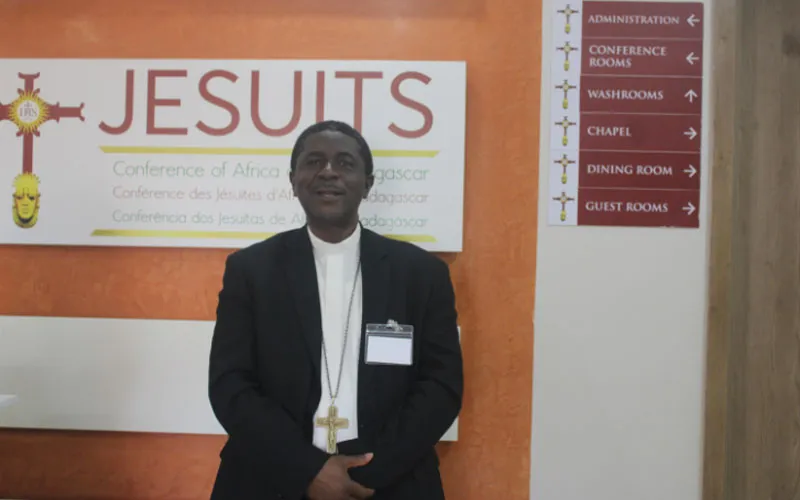 Archbishop Andrew Nkea Ifuanya of Cameroon's Archdiocese of Bamenda attending a Synodality Resources Team workshop in Nairobi. Credit: ACI Africa
Archbishop Andrew Nkea Ifuanya of Cameroon's Archdiocese of Bamenda attending a Synodality Resources Team workshop in Nairobi. Credit: ACI Africa


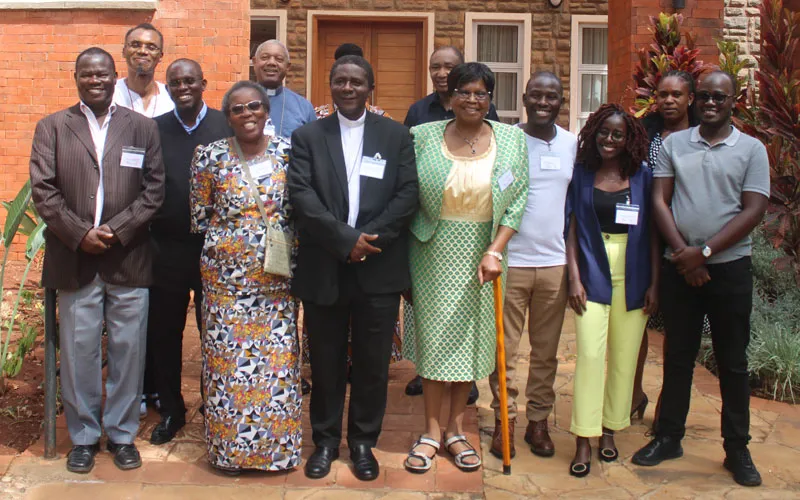
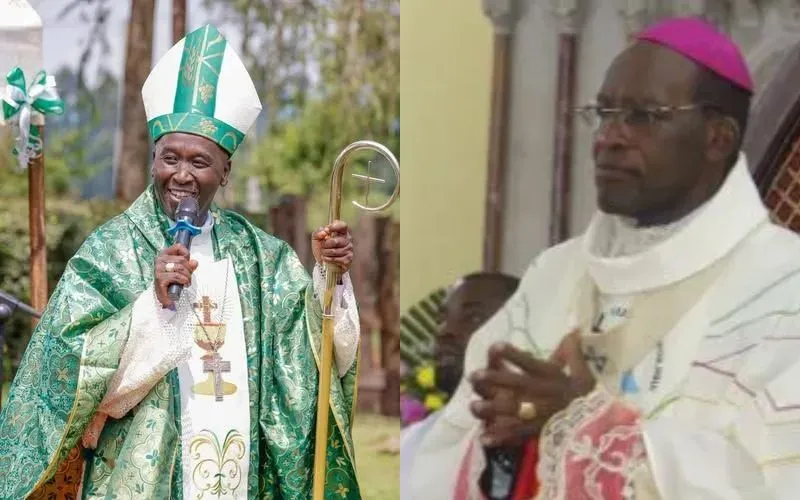
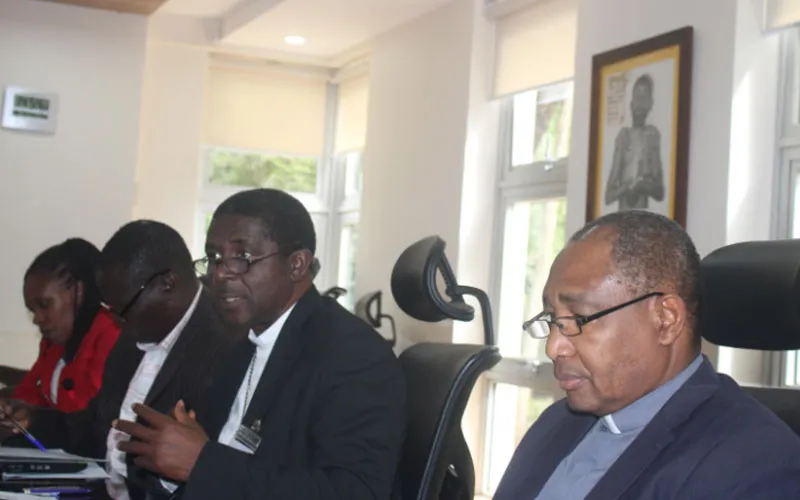 Credit: ACI Africa
Credit: ACI Africa Fr. Marcel Uwineza, the Principal of Hekima University College at the JCAM headquarters in Nairobi, Kenya. Credit: ACI Africa
Fr. Marcel Uwineza, the Principal of Hekima University College at the JCAM headquarters in Nairobi, Kenya. Credit: ACI Africa


